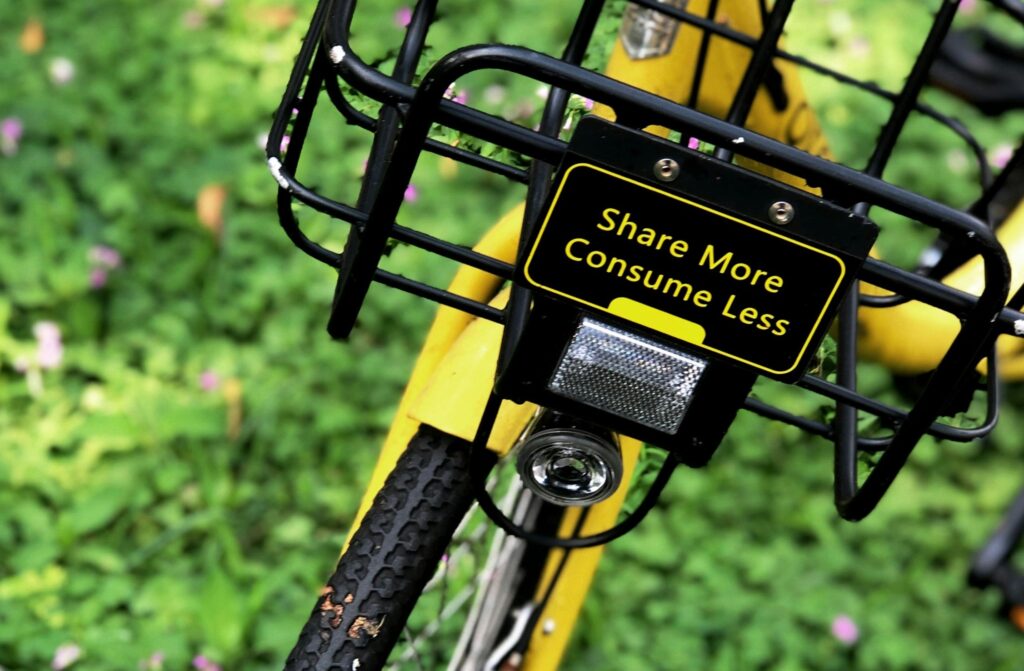
By Chaitanya Sawhney
As environmental degradation and unsustainable growth increasingly jeopardise our planet’s future, the call for new economic approaches has never been more critical. Motivated by a personal goal to make the image of a burning Earth a thing of the past for future generations and by my involvement with IYNF, this article delves into the concept of degrowth as a pathway toward a more sustainable and just world. Through my experience at Dalberg, where I examined the environmental impact of expanding palm oil production in India and my ongoing commitment to environmental conservation and management, I seek to explore how degrowth challenges the conventional obsession with endless growth. By sharing these insights, I hope to contribute to the broader dialogue on how we can rethink economic progress and build a future that prioritises both human well-being and the health of our planet.
In today’s world, the relentless pursuit of economic growth has become a defining feature of modern societies, leading to an insatiable desire for more—more wealth, more possessions, and more consumption. This constant race to outdo one another comes at a significant cost, both to our planet and the social fabric that binds communities together. The concept of degrowth challenges this paradigm, advocating for a more sustainable and equitable approach to living. Degrowth is about shifting our values and economic priorities to focus on well-being, equity, and ecological health rather than the continuous expansion that characterises traditional economic models.
The current approach, centred on endless competition, fosters an unhealthy desire to surpass others. If everyone owned a Ferrari, it would become as commonplace as everyone owning a scooter, illustrating how status loses its value when it becomes universal. Degrowth seeks to break this cycle, encouraging a mindset where “enough is enough” replaces “more is better”. This shift in thinking requires re-examining beliefs like “greed is natural” and nurturing ideas such as “share more, lack less”, which emphasise community and sufficiency over accumulation.

In regions like America and Europe, where the average household size has shrunk from 2.5-3 to 2-2.5 people, consumerism often fills the void of social connection, leading to excessive consumption. This trend also results in the construction of more homes, contributing to pollution and inefficient resource use. Moreover, the growth-driven economic model that many economists champion is not as steady as it appears. A “steady-state” growth rate of 3% annually can cause an economy to double in size within just 24 years, similar to the story of the inventor of chess who asked for grains of wheat to be doubled across each square of a chessboard—an exponential growth that quickly becomes unsustainable on a finite planet.
This graph shows the shift from economic growth to degrowth, stabilising in a steady-state economy. The economy initially exceeds the ecosystem’s limits and then reduces to a sustainable level that supports decent living standards within environmental boundaries.
The environmental urgency of our time further underscores the need for a shift in thinking. According to the United Nations, to keep global warming to no more than 1.5°C, emissions need to be reduced by 45% by 2030 and reach net zero by 2050. This will require a substantial reduction in energy consumption, a goal that degrowth supports by advocating for downsized economies that prioritise renewable energy, reduced consumption, and sustainable living practices. Current economic policies often promote growth through consumer spending and investment, yet these strategies frequently lead to unintended consequences like onerous debt, forced austerity, and rampant inflation in housing and food markets. While these issues are typically seen as problems that growth can solve, they are often symptoms of growth-oriented policies themselves. Degrowth offers an alternative by suggesting that instead of seeking endless expansion, economies should focus on achieving stability and fairness within the Earth’s limits.
Implementing degrowth would require significant adjustments, including policies that support sustainable practices such as carbon taxes, shorter work hours, improving public services, and universal basic income. These changes could help transition to a degrowth economy without causing social unrest. However, a significant cultural shift is also necessary. Degrowth asks us to reimagine what it means to live a fulfilling life, emphasising simplicity, community, and shared experiences over the accumulation of material wealth. While critics argue that degrowth is less applicable to countries from the Global South, where economic growth is seen as essential for reducing poverty, advocates suggest a differentiated approach: affluent nations could reduce consumption levels, allowing space for sustainable development in less affluent regions.

Local experiments already provide promising examples of how a degrowth society might function. Cooperative businesses, time banks, and community gardens demonstrate that economies can thrive without the need for constant growth. These initiatives can be scaled up to create more resilient communities, prioritising sustainability and well-being. Despite the challenges, degrowth presents a vision of a world that values human and ecological health over the relentless pursuit of growth. It invites us to rethink deeply ingrained beliefs and work towards a future where we prioritise living within our means, sharing resources, and fostering strong community ties. By embracing these principles, we can move towards a more just, equitable, and sustainable world, where the focus shifts from “more” to “enough”.
References
- Susan Paulson, Giacomo D’Alisa, Federico Demaria, Giorgos Kallis. The Case for Degrowth. (2020). Available at: https://books.google.pl/books/about/The_Case_for_Degrowth.html?id=x2dfzQEACAAJ&redir_esc=y
- Charles Duprez. Degrowth Can Support Business Sustainability. (2022). Available at: https://nbs.net/degrowth-can-support-business-sustainability/
- United Nations. For a livable climate: Net-zero commitments must be backed by credible action.(2023). Available at: https://www.un.org/en/climatechange/net-zero-coalition
- Planning for degrowth. (2024). Available at: https://thenextwavefutures.wordpress.com/2024/01/18/planning-for-degrowth-sustainability-transition-work/
